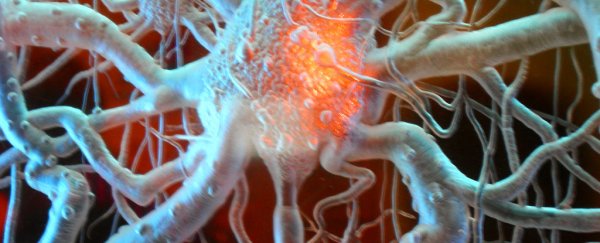A drug currently used to treat strokes in certain Asian countries has now shown potential as an Alzheimer's drug. Early trials in mice show that the medication, known as Edaravone, can help alleviate the mental decline associated with Alzheimer's disease and improve memory and learning abilities.
Publishing in the Proceedings of the National Academy of Sciences, a team of researchers from Australia and China reports that the drug appears to work through multiple pathways - which is whether other potential drugs have failed.
Alzheimer's is triggered when amyloid beta proteins and tau proteins build up in the brain and form toxic protein fragments known as plaques and tangles, which kill nerve cells and break down cognitive function. There are currently no treatments available.
"Edaravone can bind the toxic amyloid peptide which is a major factor leading to degeneration of nerve cells," said Xin-Fu Zhou, the lead researcher from the University of South Australia, in a press release. "It is a free radical scavenger which suppresses oxidative stress that is a main cause of brain degeneration."
Testing the drug on in the lab, the team showed that the drug effectively blocks the toxic function of the amyloid beta cells and stops them from killing off brain cells. But it doesn't stop there.
"It also inhibits the Tau hyperphosphorylation which can generate tangles accumulated in the brain cells and disrupt brain functions," explained Zhou in the release.
The team then tested the drug, which is currently on the market in certain Asian countries as a stroke treatment, on mice that had been genetically modified to develop amyloid build-up in their brains. Compared to a control group, they found the mice that had been given Edaravone performed better in memory and cognition tests as they aged, and also had less amyloid build up and inflammation in the brain.
While the results are promising, the researchers stress that people shouldn't use Edaravone to treat Alzheimer's anytime soon.
Simon Ridley, the head of research at Alzheimer's Research UK, who wasn't involved in the study, added in a press release that further research is now needed. "This early-stage study suggests that Edaravone may have some future beneficial effects in Alzheimer's, but further work is needed to know whether the drug could help people with the disease," he said.
Just last month, another group had success using ultrasound technology to break down the amyloid plaque in the brains of mice - the non-invasive treatment restored memory abilities in 75 percent of animals. And we're also finding out more about the cause of Alzheimer's. Fingers crossed that one of these potential options eventually leads us to a treatment, if not a cure, for this debilitating disease.

